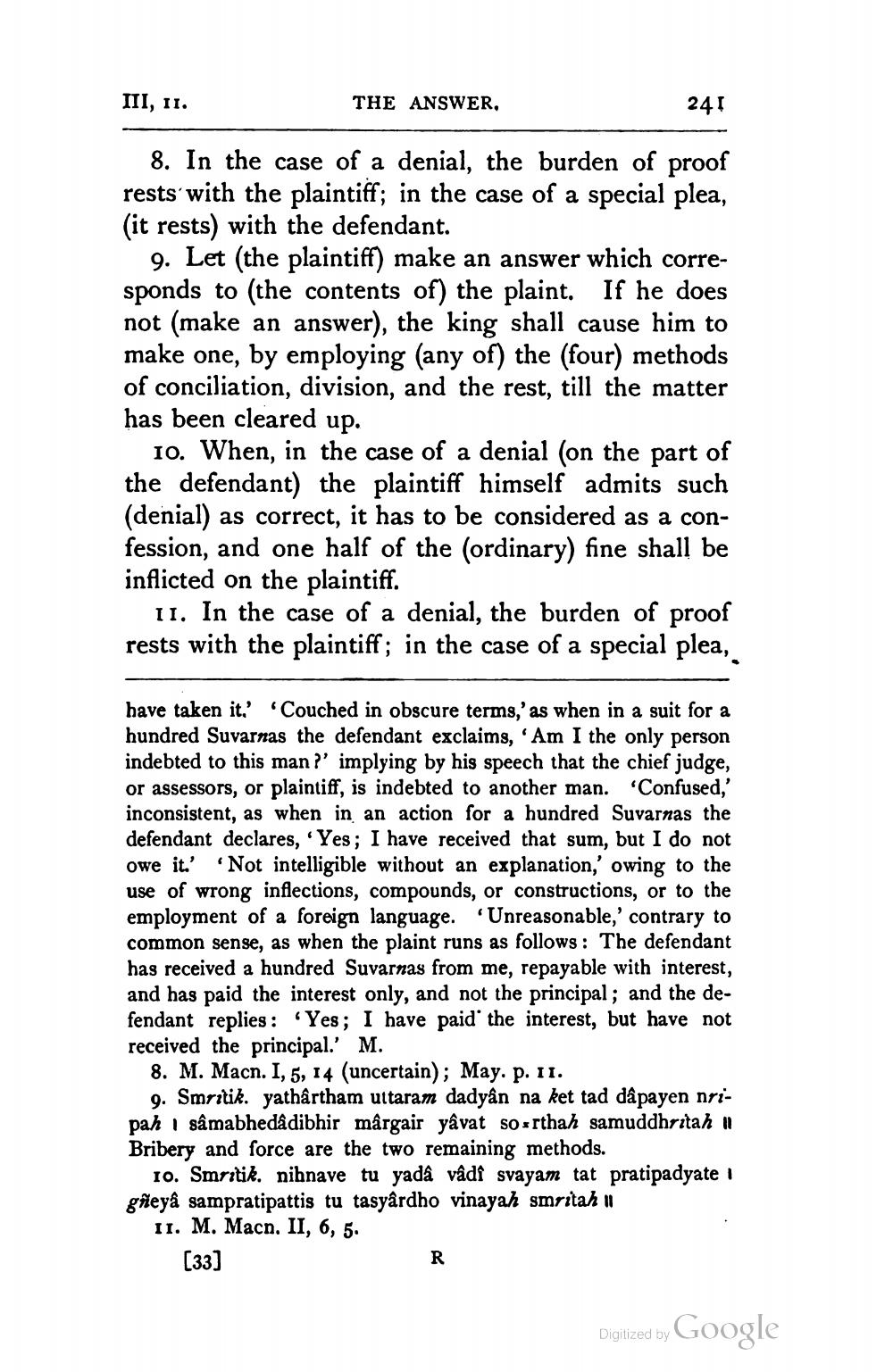________________
III, 11.
THE ANSWER.
241
8. In the case of a denial, the burden of proof rests with the plaintiff; in the case of a special plea, (it rests) with the defendant.
9. Let (the plaintiff) make an answer which corresponds to the contents of) the plaint. If he does not (make an answer), the king shall cause him to make one, by employing (any of) the (four) methods of conciliation, division, and the rest, till the matter has been cleared up.
10. When, in the case of a denial (on the part of the defendant) the plaintiff himself admits such (denial) as correct, it has to be considered as a confession, and one half of the (ordinary) fine shall be inflicted on the plaintiff.
11. In the case of a denial, the burden of proof rests with the plaintiff; in the case of a special plea,
have taken it,' 'Couched in obscure terms,' as when in a suit for a hundred Suvarnas the defendant exclaims, "Am I the only person indebted to this man?' implying by his speech that the chief judge, or assessors, or plaintiff, is indebted to another man. "Confused,' inconsistent, as when in an action for a hundred Suvarnas the defendant declares, Yes; I have received that sum, but I do not owe it.' Not intelligible without an explanation,' owing to the use of wrong inflections, compounds, or constructions, or to the employment of a foreign language. 'Unreasonable,' contrary to common sense, as when the plaint runs as follows: The defendant has received a hundred Suvarnas from me, repayable with interest, and has paid the interest only, and not the principal; and the defendant replies: Yes; I have paid the interest, but have not received the principal.' M.
8. M. Macn. I, 5, 14 (uncertain); May. p. II.
9. Smritik. yathârtham uttaram dadyan na ket tad dâpayen nripah sâmabheda dibhir margair yâvat soorthah samuddhritah 11 Bribery and force are the two remaining methods.
10. Smritik, nihnave tu yada vadî svayam tat pratipadyate għeyå sampratipattis tu tasyârdho vinayah smritah 11 11. M. Macn, II, 6, 5.
[33]
Digitized by Google




